“Very rarely do people understand the importance of what they are doing while they are doing it. It is only when they are designing the Eiffel tour that they know that it is important.”
Published on the 4th of February, 2023
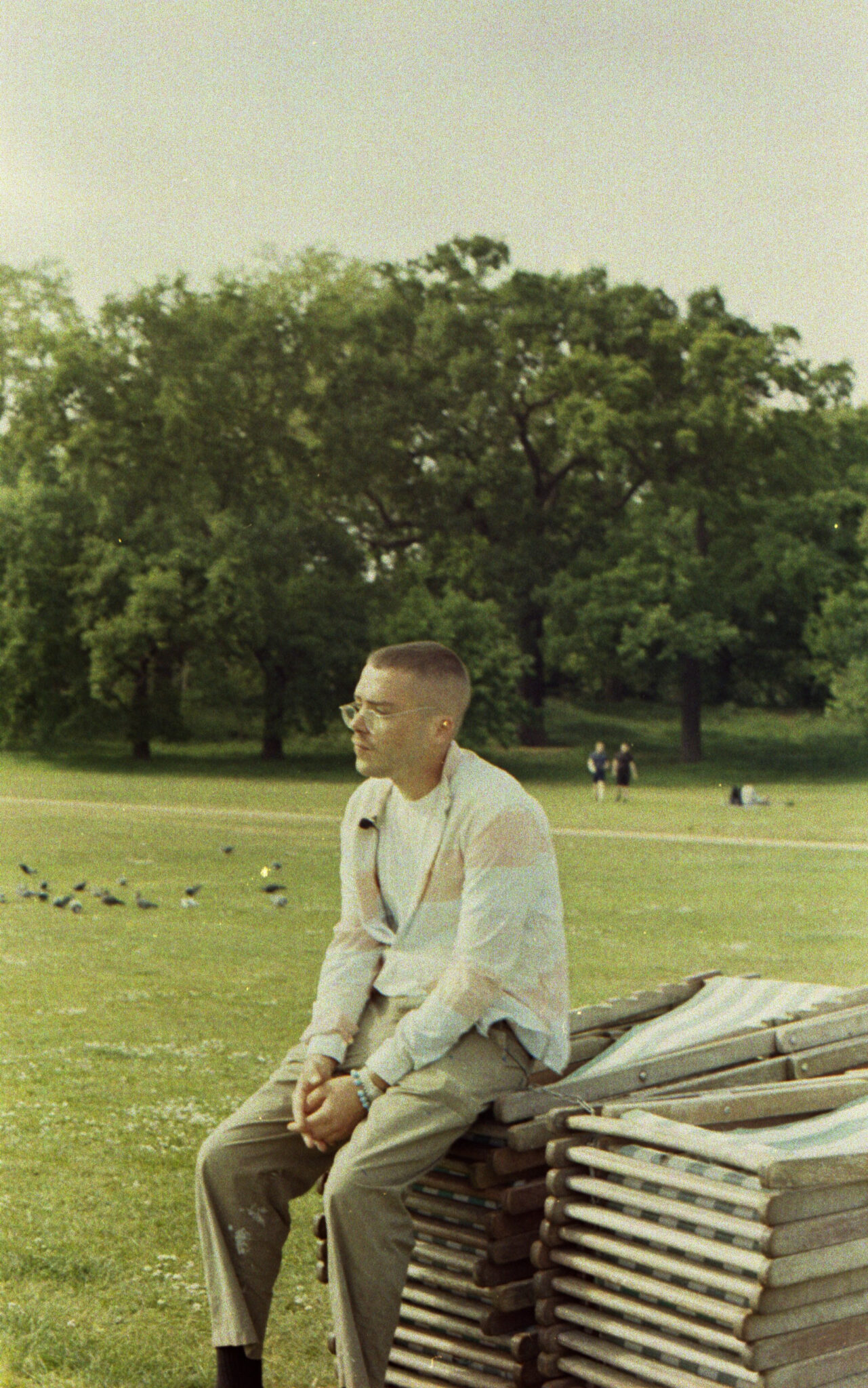
Conrad L Brooks was born in the UK, but shortly after went to Africa with his family. He spent his formative years in Tanzania, Ghana, and Uganda. He began by adopting Louis Hammock as his stage name when inspired by a “very bad random name generator”. Some years go by and Conrad decided to stand with simplicity and adopt CLBRKS as his artist name. He has been releasing projects consistently since 2015 and has worked with producers such as Morriarchi, Kiina, and YUNGMORPHEUS. His not-so-normal voice and flow, the interesting instrumentals he chooses to rhyme over, and the cohesiveness of all the projects he presents make CLBRKS stand out in the current underground hip-hop panorama.
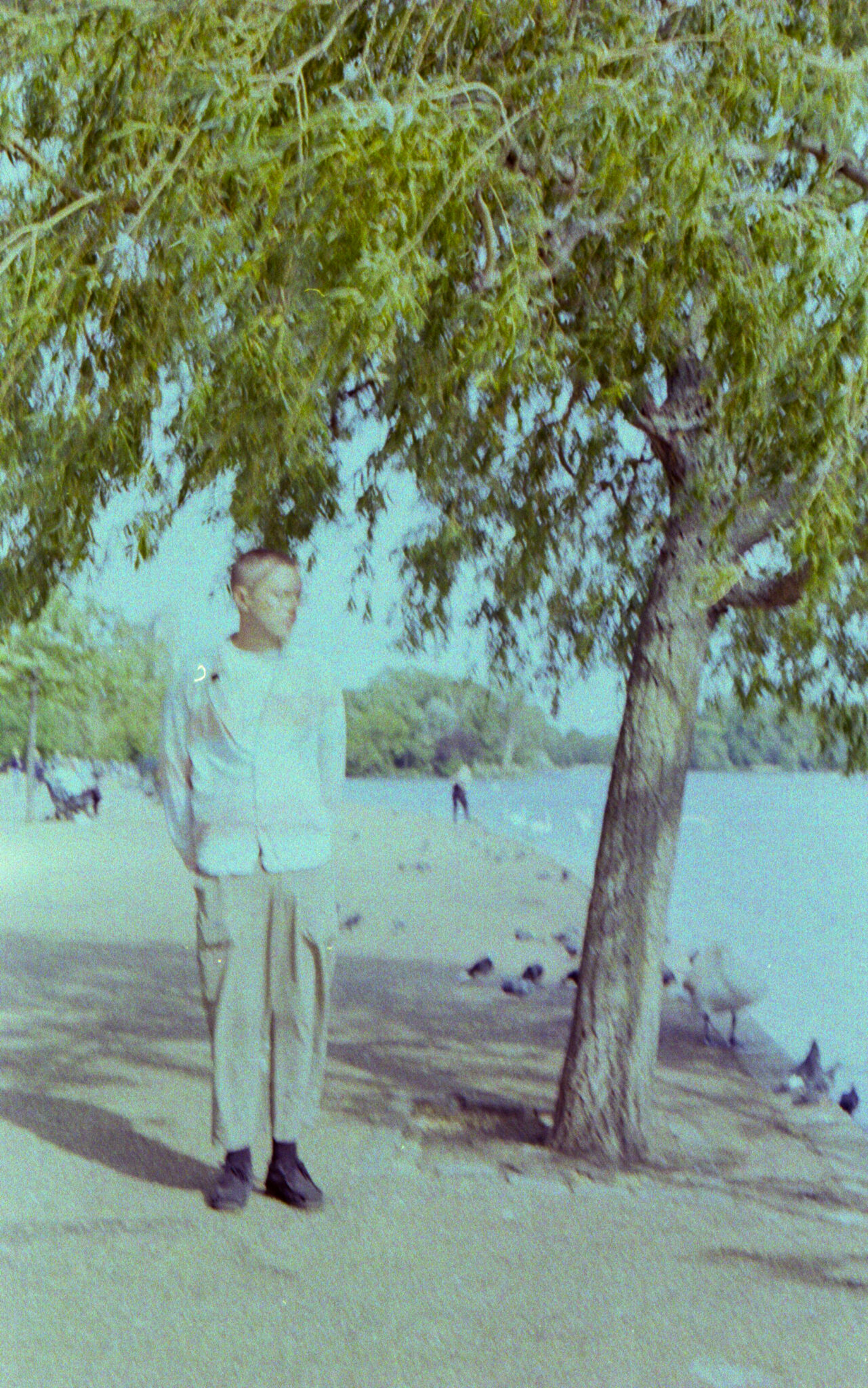
In May 2022, the project seeking sound was not debuted yet and to further consolidate this project, we went to London to do some interviews. Nonetheless, Conrad was not hesitant to accept our invitation to interview him, so we thank him for that. We met on the 9th of May 2022 in Hyde Park at two in the afternoon. We had a lovely walk, we talked about his life, career, and influences. We hope you enjoy reading this interview as much as we enjoyed doing it.
We recommend you have CLBRKS’ Spotify open by your side while reading the interview so that you can listen to any of the songs mentioned if wanted.
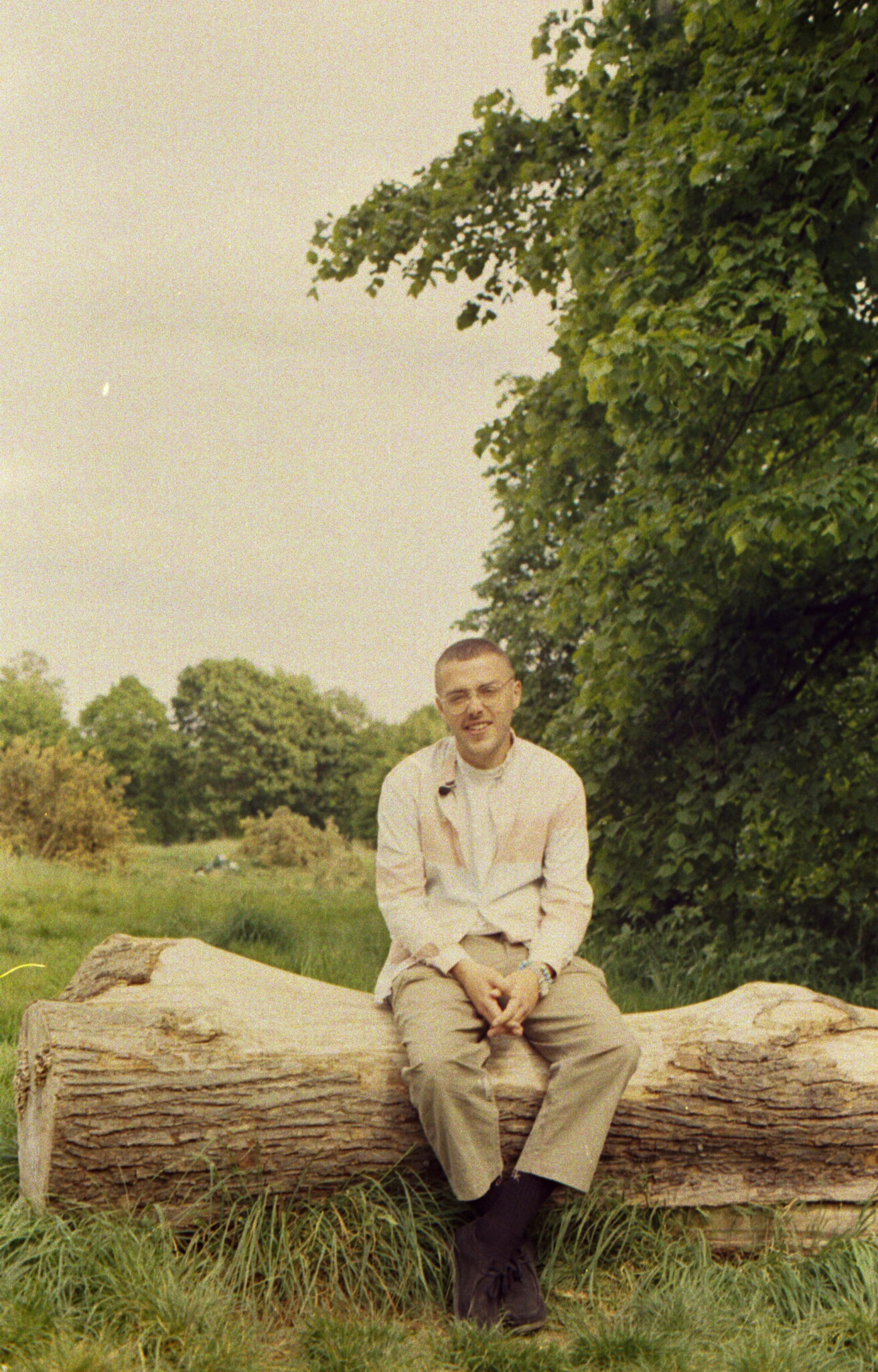
Hi Conrad. Can you tell me about your childhood spent in Africa, please?
Yeah. I was born in Aylesbury, in the UK. Then I lived in a town called Berkhamsted in Hertfordshire until I was three. It was only then that we moved to Africa. I came back permanently in 2013 when I was around 18 years old and moved to London in 2015.
It was nice to spend my childhood in Africa. I got to meet lots of people from different places. Got to eat a lot of fresh fruit, vegetables, and fish. It was odd coming back to live here, just because you can live quite well for quite cheap in Africa. In London it is expensive. And people are more polite in Africa. People here don’t talk to each other if they are on the street.
Why did your family move to Africa?
My dad was working for Guinness. There is a special kind of Guinness that is brewed in Nigeria that is very successful there. He had a big executive role in sales and management. Managing director at one point and sales manager at another point. He stopped doing that a while ago and now he helps people develop their businesses, while my mother works for NHS. She is on the mental health board. She helps these people from mental health units. Getting them out of the hospital or keeping them in the hospital if they are not well.
Was there any influence from your parents growing up?
Growing up, if we ever went on a holiday, we would always go to art museums. My parents always dressed very well. They are stylish and they always listened to good music. When they were young, they liked to listen to a lot of punk, rap, and reggae. It was my dad who introduced me to rap music by showing me NWA and Public Enemy when I was little. He bought me my first rap album: Get Rich Or Die Tryin’ by 50 Cent. My parents did everything they could to let me be myself, facilitated me wanting to learn about different aspects of culture and they have always made it so that I can always talk to them about anything.
You came back to the UK when you were 18 years old. Why?
My girlfriend at the time, my ex-partner, started going to university in London. Her brother was going to let her stay at his place. So, I moved out to London with her. I worked in a shop and started taking rap more seriously.
The problem is that sometimes you get too distracted by your work and then you end up treating it like your life when you want your life to be something else. Later, I did another job where I wanted to progress and move up in the company. Then I got fired and I was like: “Oh shit”. At that moment I realized that I wanted to make music. So, I just focused on music from that moment onwards.
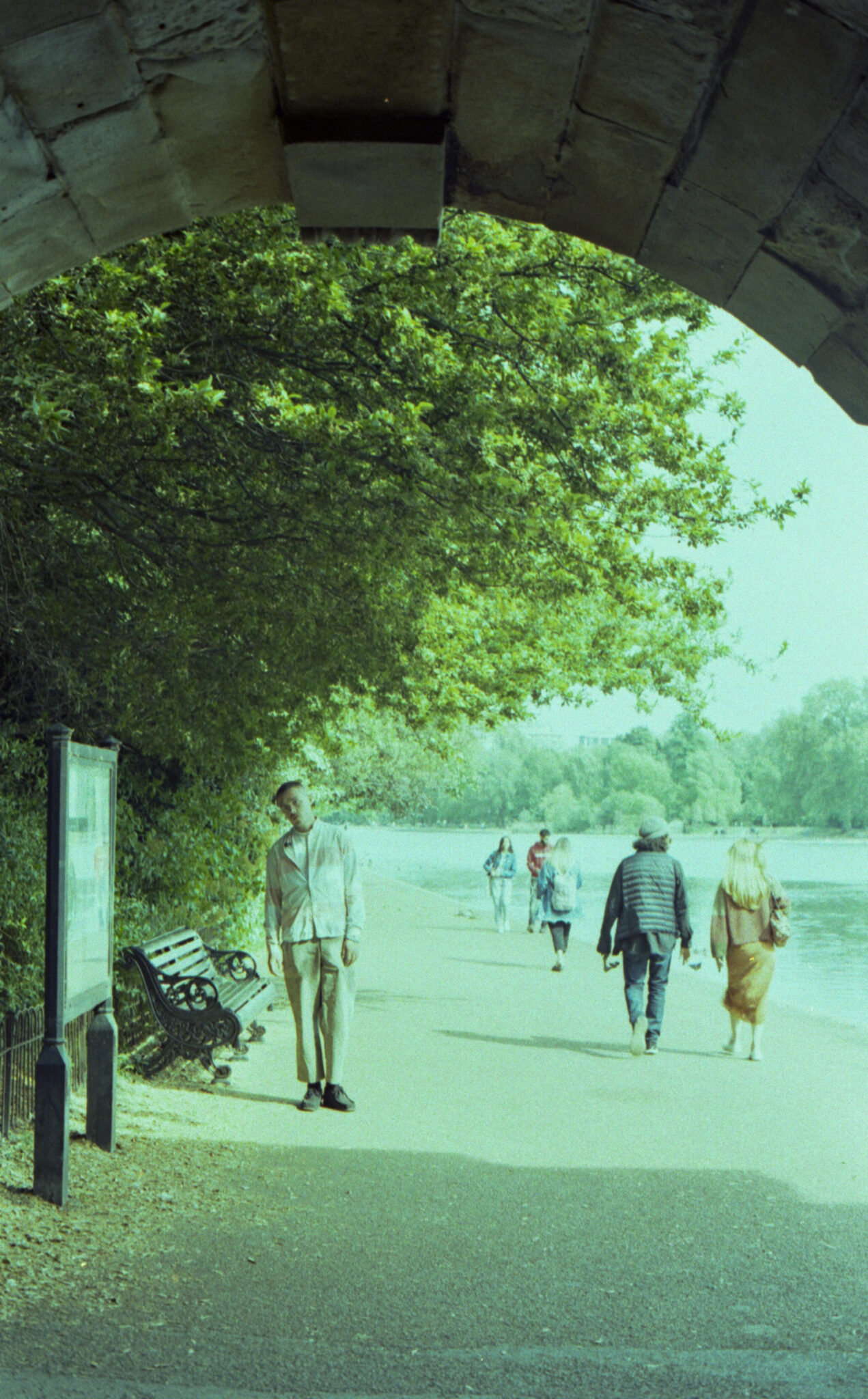

What elements of popular culture were important to you?
I started finding out about BAPE and Nigo when I was 12. Being in another country, and trying to keep up with popular culture, was a big deal to me. Just trying to keep up with the curve. I am not a massive fan of BAPE since Nigo sold the company in 2013. But at the time BAPE was something that was constructed with care, was made of good quality, and was built to last. There are still things from 2008, Nigo era BAPE, that still look good today.
I must have been 15 or 16 when I found out about Odd Future. It was all done in a very shock-value way that you cannot do anymore because they have already done it. They were not taking themselves seriously in the sense that they only did what they want. I think it was more the sense of how they built something from a very base level and build a community around it. They were all these different kids from different places, but they had a common goal. A bit like a skateboarding team or skateboarding company. It had a very DIY, punk mentality. And I have always been an advocate of the Do It Yourself culture.
How important is it to you to study your former peers?
If you are a chef, you are going to look up to all the great chefs. You just look up who pioneered things or who created things. No matter what you do, you have to study something. I think that is where a lot of people are wrong. They think they want to do this kind of thing and when they are forced to learn the foundations of something it gets them upset. Some people don’t want to draw fruit bowls in art class, but you are going to have to learn to draw fruit bowls to understand the basic foundations of drawing. It was important to study all the big things that changed hip-hop culture. You must study them to be part of the change in the future.
Your rap voice is very peculiar. How did you find it?
I use my nose a lot. I talk through the roof of my mouth. I am more subdued when I am talking like I am now and it is less high pitch. I am trying to learn to rap just in my speaking voice. But something about it just comes out wrong.
I don’t want to confuse people to think that I completely changed everything. An interesting album that influenced me that way was Zelooperz’s album, Van Goghs Left Ear. All the songs are very different from one another but at the end of the day, you can still recognize it as a Zelooperz album.
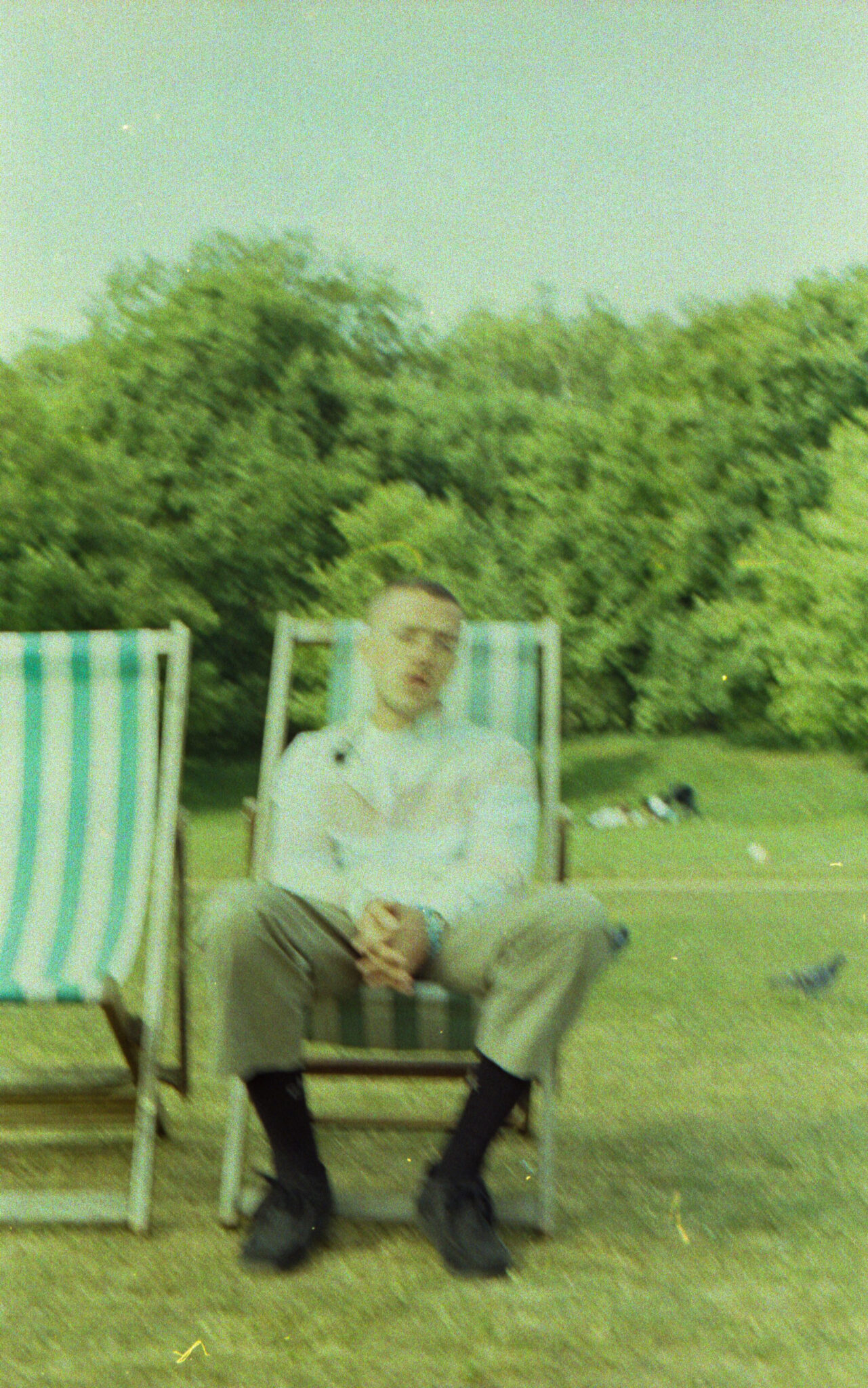
What do you think about the current state of hip-hop in the UK?
It is getting better. It used to be very boom-bap oriented. Now it is a bit more left field. You have got some interesting people doing some interesting things. You have Lord Apex doing great work. You have people like Verbz, Renelle 893, Theodor Black, and Conrad Mundy. All these great people doing interesting things, doing something different. Even Blah Records, who I work with, just trying to change things and not be so predictable.
Why do you sell your albums in the cassette format?
It is to offer people something to collect. Something physical. I started making cassettes because it is way cheaper than doing vinyl. 250 pounds will get you 50 cassettes. You sell them for 10 pounds each and you make another 250 quid on top. You won’t make much money but in an age of Primark and Nike, where everybody has the same thing, it is nice to make something small and unique that only a few people can have. It is just about having different ideas and giving people things. And it is the only direct way to support an artist financially. Because other than shows the merchandise is the big breadwinner.
“A lot of people come out with their best art when they are depressed, at least to some extent”. This is something you have said before. Can you coment on it?
Yeah. There is some truth to that. But also, some people come out with their best art when they are sane-minded. I think a bit of turmoil will always create something good. If you look into why Marvin Gaye made the album Here My Dear it is very interesting. He made it because he owed his wife so much money in the divorce proceedings that the only way he could give her the money was if he made this album and all the money from it would go to her. And it is him just saying “here, have this”. It is dark in that sense. There is a dark undertone to that album and that is why it is one of his best albums even though it is one of his less-known ones.
When you reminisce about your relationship with drugs and alcohol would you have anything to say to your younger self?
Don’t take so many drugs and drink so much alcohol. I struggle with alcohol, and I love alcohol. I have been addicted to all kinds of drugs in the past and I have had my share of problems. In many ways, drugs and alcohol can be very facilitating creatively but sometimes you might just be on drugs making shit music. It is like everything in life. It needs to be done with a lot of balance, consciousness, and safety. I don’t want people to think that I am on drugs all the fucking time and going crazy, because I work very fucking hard. A lot of people have tried to use that against me. I am just honest. I am honest with myself. I don’t hide shit. It is what it is. I am learning to balance it better. Sometimes it is easier just to let things take control of you. But if you can control it, then you are all good. A lot of people think they got the drugs under control when that is not the case. It is a very slippery slope. It is not just about the food you are ingesting and how much sleep you are getting. It is about the culture that you are consuming. If you are going to sit there and watch depressive movies, listen to depressive music, and do drugs that depress you, you are going to be depressed. You have to look after yourself.
Interlude

“So you hear this noise? It is this place called “Speakers Corner” where you can go and say whatever the fuck you want. I mean, I think within reason, as long as it is not an insane hate speech. You can pretty much say most things. It is where all the fucking crazy people go.”
“Bonito” videoclip from Microwave Cooking 2000 project was filmed in Lisbon.
In your first two projects SUPAKING and PEUGOUT MUSIC VOL. 1 you have had multiple production credits, but in the projects that followed there was only one producer in each one.
Yeah. I need to go back to do it. The original goal of just doing a producer & musician project is to achieve a cohesive sound that sounds the same all the way through the album. I still had multiple producers in PEUGOUT MUSIC VOL.1 and SUPAKING. Producer & musician projects can become slightly detrimental because then everything is CLBRKS & Kiina, CLBRKS & Morriarchi, CLBRKS & Dweeb, and if you are just getting into me and you don’t know me you might think that CLBRKS & KIINA is a group. So I think once I have got these next few things that I made out of the way (which are all with one producer), I will start curating my albums more and getting multiple producers on them.
What is the main difference between your project Habits and its sequel Habits 2?
Habits is just me and Kiina getting to know each other. That was some of the first music we ever made together and that is the beginning of a relationship. We met in 2017 and since then we have become quite good friends. He is a very interesting guy. He has a lot of taste and knows a lot about things that other people don’t know about.
Habits 2 is far more organized and less confusing. We knew what we were doing when we were doing this one. We had more of a plan in mind. With Habits 2 we took much more time to make it and eventually it was just like we have got all of these songs, let’s just compile it.
In 2021 you issued a small statement in which you said you needed to slow down. What happened?
I think I lost all direction of where I was going. It was at a pivotal point when I was meant to progress. I had just dropped Microwave Cooking 2000 with Blah Records. And then the world stopped for me. The same thing was happening with my ex-partner as well. We both felt a bit lost and happened to be locked in together. I worked too hard and did not let myself rest. At one point Ogbloops and I had a studio where sometimes I would spend days in and never go outside and constantly just be working, drinking as well, and going crazy. I got too caught up with trying to be CLBRKS too quickly rather than focusing on my life one step at a time. I made a lot of mistakes. I wasn’t balanced at all at that time in my life.

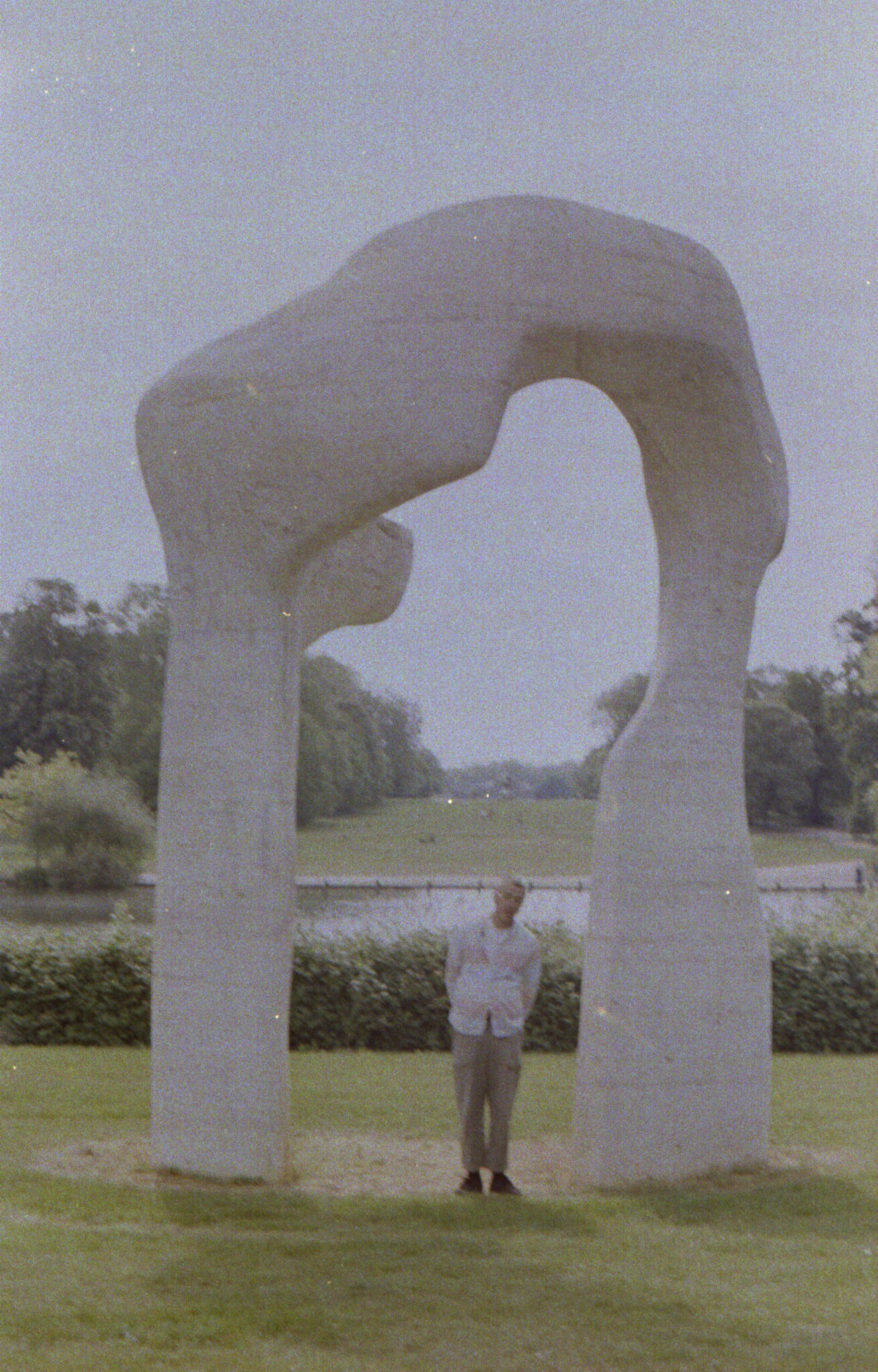
How did you and Dweeb come up with The Library of Babel?
Dweeb and I never met. We did the album online. I started making the songs, then I started reading “The Library of Babel” book by Jorge Luis Borges. I applied the concept of the book to three or four of the songs, then I got the audio samples. The samples are the most important part. It is what brings it together. The Library of Babel has lots of biblical references to it. There are lots of parallels to the bible and people try to interpret meanings through religious texts.
Religion fascinates me, but do I practice it? Not really. It is a good way to understand where people come from and what beliefs people hold. It also helps to understand why society might be as it is. I just find religion interesting as a means of how it gives people hope. The belief that something is greater than you and everything around you, I find it interesting.
The Library of Babel was the album that gave me more joy to do and release. Felt like more than an artistic effort than just a rap album. It is my brainchild.
You recently released your first beat tape ALL MY IDOLS LIVED FAST. When did you start doing production?
Can’t think of an actual day. I think it must have been after the lockdown. It must have been a recent development because I don’t think I am very good at making beats. I just tried to do different things. I started trying to make collages and beats. Because I like creating stuff. There are a lot of people who make things and never do anything with them. Fuck that, I want to do something to exhibit it. I don’t make anything for no reason. Creating rap music has become like a job life. Writing is fun, but then the recording of it, and then mixing and mastering getting it together and compiling it and dedicating it to this album, and getting the artwork and the music video is a chore you know. You have to push yourself to keep enjoying doing that. But then if you don’t enjoy doing it, then what is the point of doing it? It is a struggle.
But do you enjoy doing it?
I do, but there have been times when I have turned music into a job and not a passion. And that is when I get confused. But if I didn’t do that then maybe I wouldn’t have seen some of the successes that I already have. Because I wouldn’t have applied the same sense of seriousness.

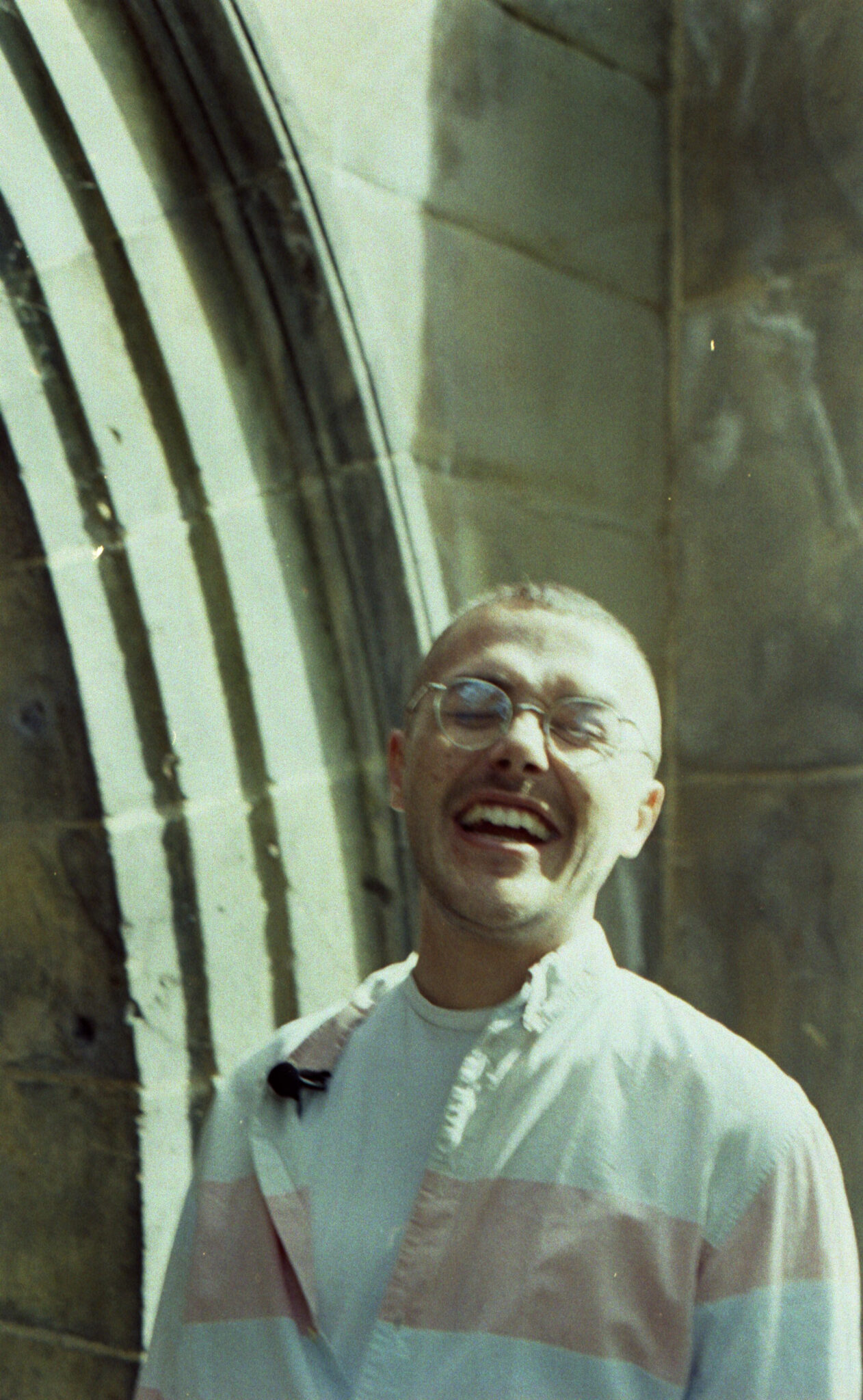
Who are three artists that inspire you at the moment?
Mach-Hommy, Navy Blue, and West Side Gunn. I just like how West Side Gunn puts out an album.
What about your next project with Vagrant: The Iceberg Theory? How did it come about?
It was initially just a commissioned project. He contacted me and said we should do it and I said yes. He had an idea of what he wanted to do. That album is very much his vision, and he is very much in control of it. Unlike normal, I have taken the back sit with it and let him control it. The Iceberg Theory is a theory made by Ernest Hemingway and we used it as a bit of an influence in the album. There is always far more going on than what you can see.
I want to make you a question. I will say the name of each producer you have worked with and you will say the first word that pops into your mind.
Sure.
dylantheinfamous – Young.
Ogbloops – Clean.
Morriarchi – Vision.
Dweeb – Obscure.
Kiina – Artistic.
Vagrant – Organized.
DRAE THE SKIMASK – Non-stop.
dylantheinfamous – Young.
Ogbloops – Clean.
Morriarchi – Vision.
Dweeb – Obscure.
Kiina – Artistic.
Vagrant – Organized.
DRAE THE SKIMASK – Non-stop.
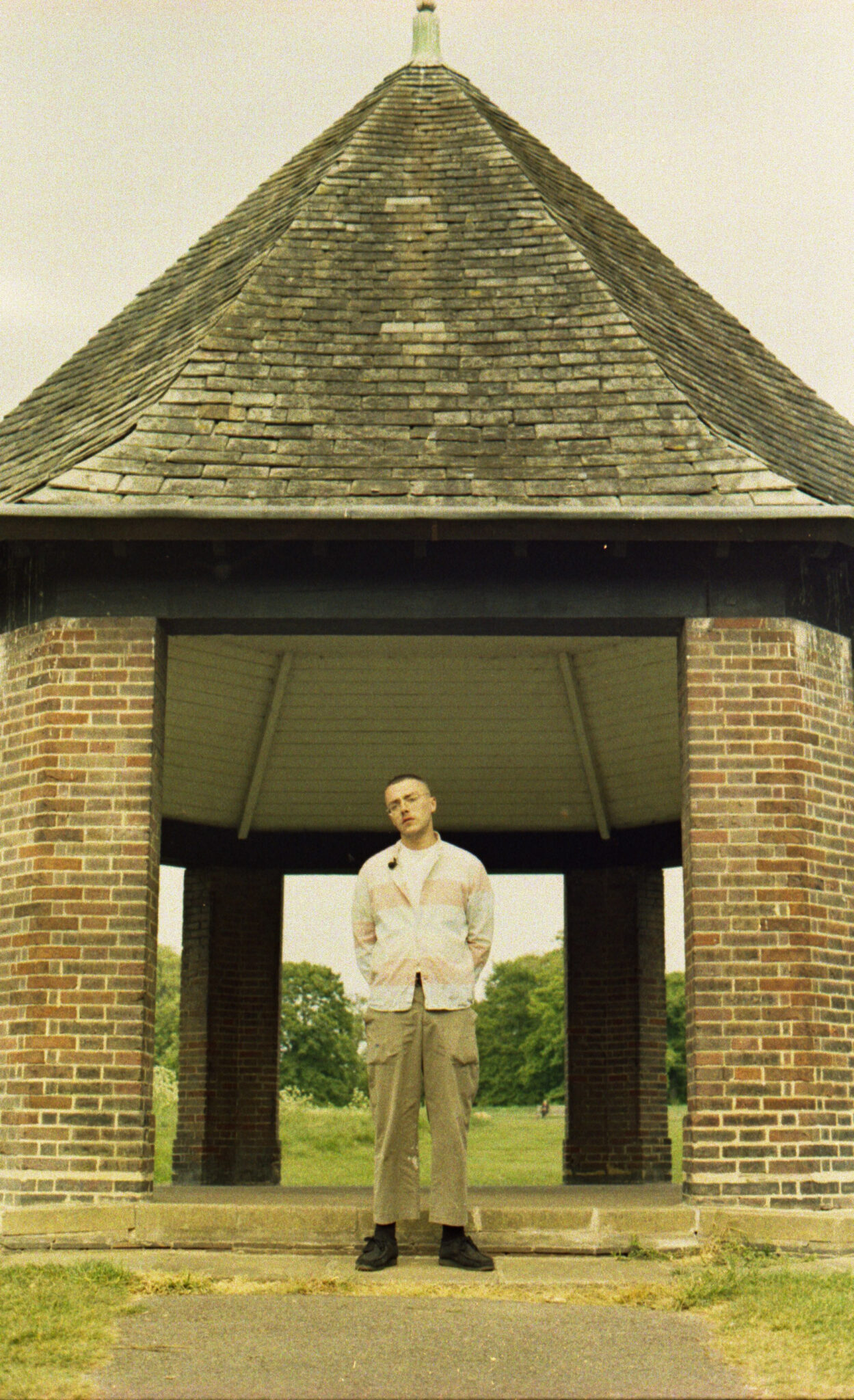
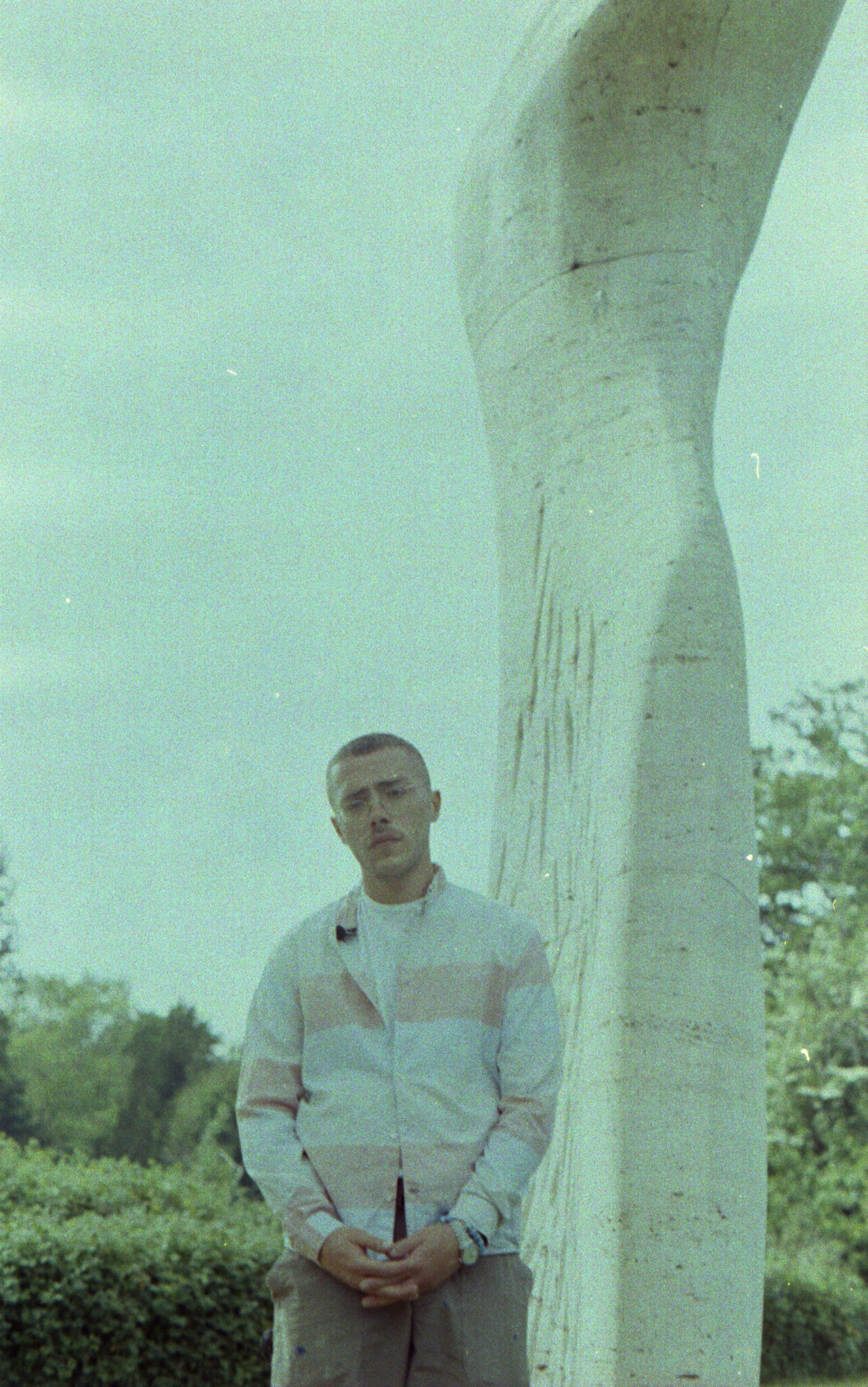
What are your future perspectives for your career?
Wherever God takes me. I would like to start releasing music for other artists under my label. As I have got older, I have got to work out a way to make long-term money and money that keeps coming back. I would like to tour more. I have never played at a festival or performed abroad. Maybe I would like to have my radio show. Just playing music I like and showing it to people.
To wrap up, how would you describe your work ethic?
Recently, semi nonexistent. When I am working, I am fucking working. I work harder than a lot of people I know. It is important to take time. I got from a long time of working very hard every day. If I am recording, I write and record three songs minimum a day. It has to do with how I feel. If I feel like doing it, then I will do it. But if I don’t feel like I can’t rush it. You can’t rush greatness as they say. You can’t force things. You must take the time to do shit like this. Walk around, go to museums, and eat good food. It is important to ingest different aspects of culture that are needed to be consumed for you to remain inspired.
Very rarely do people understand the importance of what they are doing while they are doing it. It is only when they are designing the Eiffel tour that they know that it is important. Most of the time when people are creating something, they don’t know what is going on. They are just doing it because it might be something.
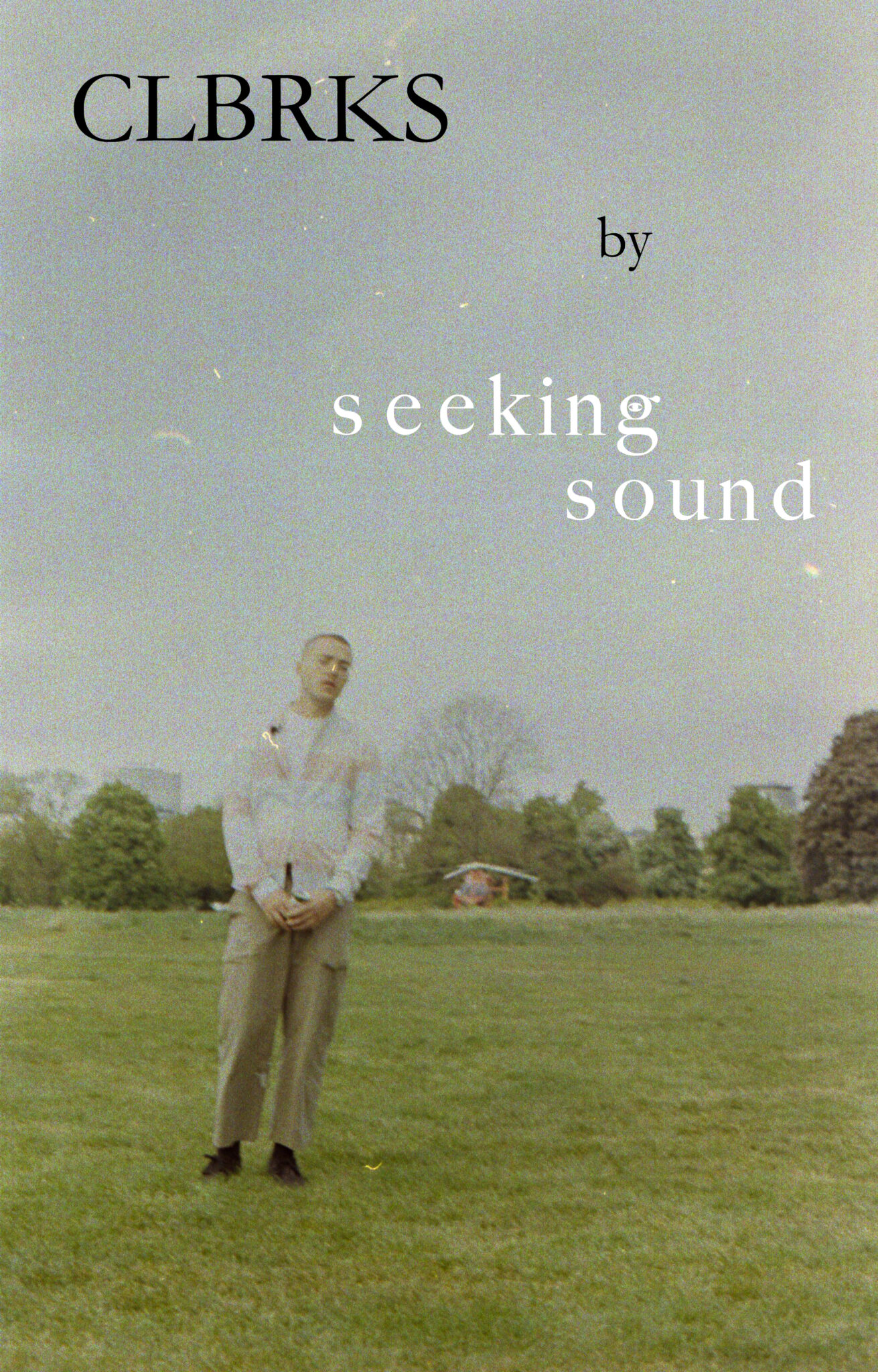
In 2022 CLBRKS released three projects, each one with a different producer.
Since the 9th of May 2022, he has released two new projects. The Iceberg Theory was entirely produced by Vagrant and A Place I Got Lost In was entirely produced by YUNGMORPHEUS and released on vinyl on Tuff Kong Records.
On the 4th of August he shared the stage with KILLOWEN and others at the BABYFACE MUSIC PRESENTS event that took place at The Old Blue Last Venue.
CLBRKS participated in the Blah Records takeover at the Fabric London on November 3rd and had the honor to support the KRS-ONE live show at KOKO Venue in Camden on the 26th of November.
You can find CLBRKS on Instagram.
